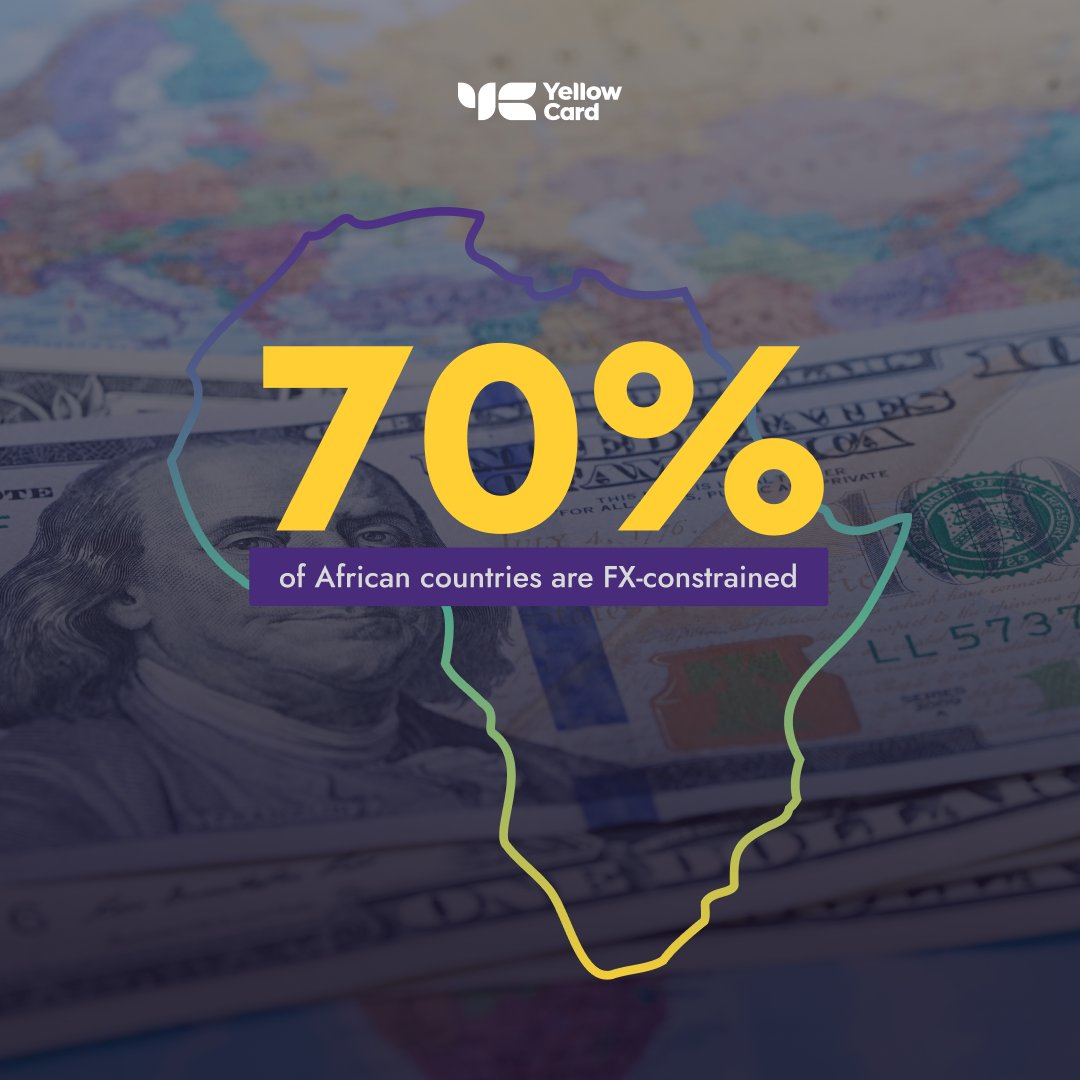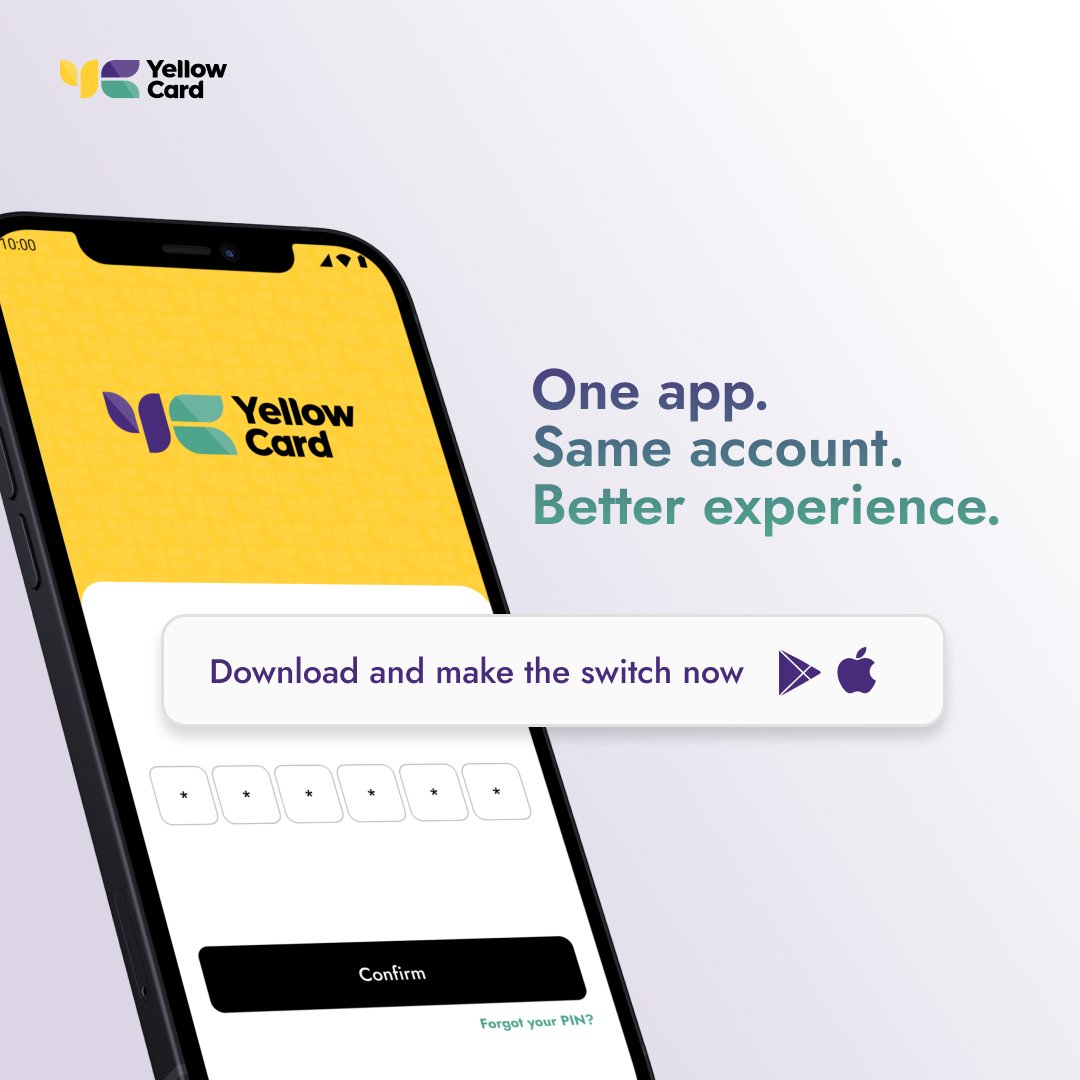Insights
Building the rails for digital dollars across a continent left behind by traditional finance
November 20, 2025

In an era where traditional financial systems often fail to serve emerging markets effectively, Yellow Card has emerged as a trailblazer in Africa's fintech landscape. Founded with the mission to make cryptocurrency accessible and practical for everyday use, the company has evolved into Africa's leading licensed stablecoin payments orchestrator.
By leveraging stablecoins like USDT, USDC, and PYUSD, Yellow Card enables seamless cross-border payments, treasury management, and USD liquidity for individuals and businesses across the continent.
As of November 2025, Yellow Card operates in over 20 African countries and has processed more than $6 billion in transaction volume, solidifying its role in driving financial inclusion amid economic challenges like high inflation and currency volatility.

Yellow Card's story began in 2016 when co-founders Chris Maurice (CEO) and Justin Poiroux (CTO), then students at Auburn University in the United States, recognized the potential of Bitcoin and cryptocurrencies to solve real-world financial problems. Maurice, inspired by the inefficiencies in cross-border transfers and currency instability, initially explored building in the U.S. but pivoted to Africa after online conversations highlighted the continent's acute needs.
The company officially launched operations in Nigeria in 2019, starting as a consumer-focused cryptocurrency exchange allowing users to buy and sell Bitcoin and stablecoins using local currencies via bank transfers, mobile money, or cash. Early growth was explosive: by 2021, Yellow Card reached 1 million customers.
However, the team soon noticed a shift, businesses were increasingly using the platform for treasury management and international payments rather than retail trading. This insight prompted a strategic pivot toward B2B solutions.
Today, Yellow Card positions itself not just as an exchange but as critical financial infrastructure, empowering banks, fintechs, importers/exporters, and multinational corporations with stablecoin-based tools.
At its core, Yellow Card functions as Africa's largest and first licensed stablecoin on/off-ramp. Users deposit local currency (e.g., Naira in Nigeria, Cedi in Ghana, or Rand in South Africa) and receive stablecoins pegged to the USD. These can then be used for:

Yellow Card earns revenue primarily through spreads on transactions rather than high fees, making it cost-effective. The platform supports direct invoicing, payroll, and settlements via stablecoins, eliminating intermediaries and reducing settlement times from days to minutes.
For consumers, the mobile app and web platform remain user-friendly, requiring no bank account in many cases—ideal for Africa's large unbanked population.
Global recognition; integrations for Universal Money Addresses (UMA) and stablecoin cards
Yellow Card has now raised over $85-90 million in total funding from top-tier investors including Blockchain Capital, Polychain, Block Inc. (Jack Dorsey's company), Coinbase Ventures, Winklevoss Capital, and Galaxy Ventures.
Yellow Card's success is amplified by high-profile collaborations:
These partnerships position Yellow Card as the go-to infrastructure provider rather than a competitor, with giants like Coinbase and Block relying on its API for African market entry.
Africa faces unique financial hurdles: average inflation exceeds 18%, remittances cost ~7% on average, and over 400 million adults remain unbanked. Stablecoins offer a lifeline—sub-Saharan Africa has the world's highest stablecoin adoption rate at 9.2%, with countries like Nigeria and Kenya leading globally.
Yellow Card addresses these pain points directly:
By prioritizing regulatory compliance (e.g., South Africa's CASP license), Yellow Card sets a standard for responsible fintech growth amid varying crypto regulations across the continent.
Looking ahead, Yellow Card plans further expansion into markets like Morocco, Ethiopia, and beyond Africa (e.g., Brazil, India, Mexico). With new products like stablecoin treasury tools and developer APIs on the horizon, the company is poised to play a central role in the global shift toward digital dollars.
In Chris Maurice's words: "We're not just building a company; we're building infrastructure that makes financial access seamless and inclusive." As stablecoins reshape payments worldwide, Yellow Card is proving that Africa's fintech innovators are leading the charge.
Yellow Card isn't just a crypto platform—it's a catalyst for economic empowerment in emerging markets, turning the promise of blockchain into everyday reality for millions. For businesses eyeing Africa or individuals seeking better financial tools, Yellow Card represents the future of money on the continent.
Visit yellowcard.io to learn more.
The Stabledash newsletter keeps you off the timeline and dialed into modern money.
Join leaders at Circle, Ripple, and Visa who trust us for their stablecoin insights.